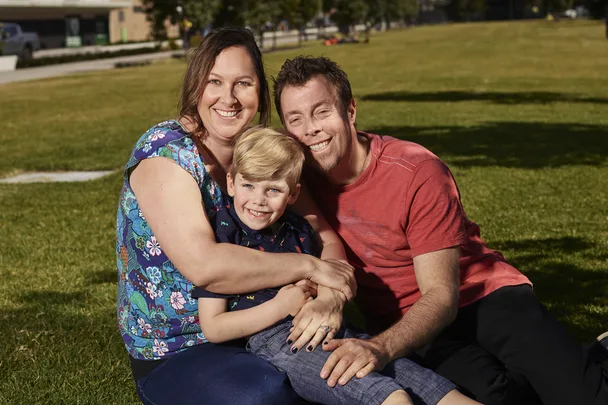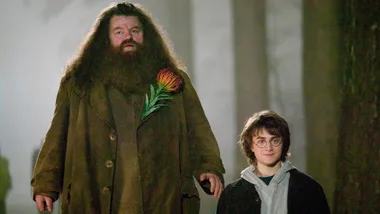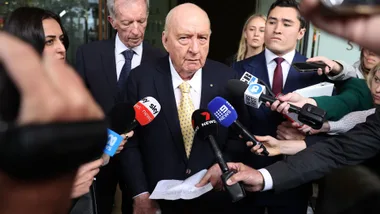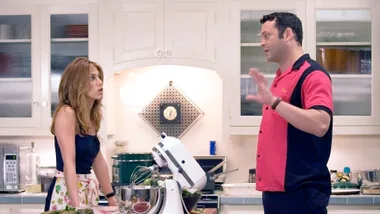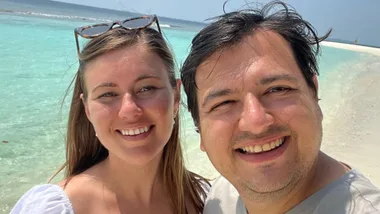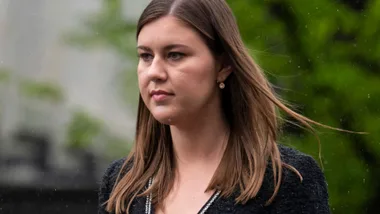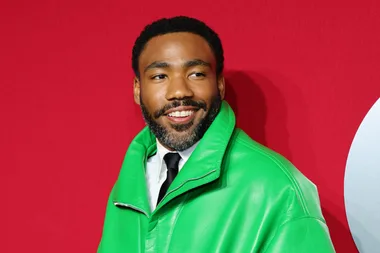When one of Heidi Routley’s friends got a shock breast cancer diagnosis, she was encouraged to have a mammogram. But as life would have it, raising children and studying for her masters would get in the way. She was eventually tested at the age of 43, just a few years short of the recommended age of 50 in Australia. At 44 she was diagnosed with breast cancer subtype, Invasive Ductal Carcinoma.
“I had to have a biopsy. I thought it would be nothing. Turned out that it wasn’t nothing,” Heidi says. “I was standing in Coles buying a birthday cake for my mum for dinner that night and my phone rang. It was my surgeon. He was ringing to tell me the news that I had breast cancer.”
“The very first thing I did was I went and sat outside of Coles and I rang my university lecturer because I was just finishing my masters and I had my final assignment due on a Sunday and the call came on the Wednesday before. I rang her straight away and I said I just don’t know how I’m going to get this assignment done.”
She remembers her lecturer being incredibly supportive, “She said, ‘it doesn’t matter Heidi, It’s a piece of paper. We’ll get that done. You look after yourself.”
Heidi recalls the moment as bittersweet, as just that day she had also received accreditation from the NSW Department of Education to teach. She and her husband had been working towards this moment, budgeting for the previous three-and-a-half-years for her to study. She says undergoing treatment at a point in her life where she expected to begin a new career was challenging.
“My oncologist didn’t want me to be teaching, especially during that first chemo. So on top of dealing with cancer, we were treading water a bit financially.”
It was the support she received from family and external charitable organisations that Heidi credits to helping her through. “I’ve got my amazing family and friends and they’ve organised a food train, so we had meals coming on chemo weeks so that it’s not so much pressure on my husband to sort dinner out for us.
“But there are also so many great organisations out there who have helped financially, just with cleaning and things like that. I’ve used Mummy’s Wish, which is an organisation for mums with cancer and they’ve organised a beautiful teddy bear for my son, which has got a little love heart voice recorder so you can record messages if you’re going in and out of the hospital.”
Heidi is also a supporter of Breast Cancer Trials and has recently participated in a Breast Cancer Trials awareness campaign.
“For me particularly, because I’m triple-negative breast cancer, that means that the likelihood of my re-occurrence is higher than normal breast cancer, that’s hormone-related. I thought ‘oh yay, I’m triple negative – negative is a good thing’, but then I did some research and it wasn’t such a good thing. So, for me, in Breast Cancer Trials research, if there’s something there that can pick up on those tumour cells earlier, especially for triple-negative breast cancer for patients like me – then it’s all worth it.”
Breast Cancer Trials currently has one clinical trial open to patients with triple-negative breast cancer, CHARIOT.
May is Cancer Research Month. Breast Cancer Trials is AUNZ’s largest oncology research group comprising of world-leading breast cancer doctors and researchers, all with a commitment to exploring and finding better treatments for people affected by breast cancer through clinical trials research. Go to www.breastcancertrials.org.au to find out more. May 20 marked International Clinical Trials day. For more information go to – https://www.clinicaltrialsday.org/about.
